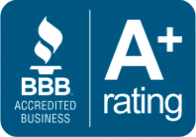Incorporation provides an opportunity for communities to obtain greater control over local matters. Becoming a city is challenging and should ultimately be considered as a last resort to other available alternatives for meeting local needs. Generally, incorporation is appropriate when residents in the area desire a full range of governmental services that the county government cannot adequately provide.
Oregon cities are general purpose governments with broad powers. The Oregon State Legislature enacted the first Oregon Incorporation Act in 1893. The current statutory procedure for municipal incorporation is set forth in ORS 221.010 to 221.110. ORS 221.020 provides, in pertinent part, a community with at least 150 residents outside of an existing city may incorporate a new city by approval from the people through an election. The first step to incorporation requires that the petitioners file a petition form with the county clerk. In accordance with ORS 221.031(3), the petition must contain the following information: (1) names and addresses of not more than three chief petitioners, who must be electors registered within the boundaries of the proposed city; (2) the name of the proposed city; (3) a proposed permanent tax rate that would generate operating tax revenues sufficient to support an adequate level of municipal services; and (4) a map of the exterior boundaries of the proposed city. The standard Secretary of State Petition Form SEL 701 meets these requirements.
Along with the incorporation petition, ORS 221.035 requires that an economic feasibility statement be filed with the county clerk. An economic feasibility statement must contain the following: (1) a description of the services to be provided by the proposed city; (2) an analysis of the relationship between those services and other existing or needed government services; and (3) a proposed first- and third-year budget for the new city demonstrating its economic feasibility. When the petition for incorporation is signed by 20% of the electors registered in the area (or 10% in a county with a population over 300,000), the petition must be filed with the county clerk.
Next, the county clerk will schedule a time and place for a public hearing on the petition. Persons from the community will be able to present oral or written objections to the petition at the public hearing. If the county commission approves the petition after the final hearing, it must order an incorporation election and set an election date for the next primary or general election.
ORS 221.050 provides that at the same election, the proposed city should elect five council members. The general election provisions provided under ORS Chapters 246 to 260 govern the council election.
Within 30 days after the election, the county court must announce the outcome of the election. The results of the election are deemed to favor incorporation if (a) majority of the votes cast are in favor of incorporation and at least 50% of the electors eligible to vote actually cast a ballot, or (b) the election is held in May or November of any year (ORS 221.050(4)). Additional requirements apply when the area to be incorporated is within three miles of an existing city and outside a city urban growth boundary.
After the city has been incorporated, ORS 221.110 to 221.140 provides the basis for council decisions until city voters adopt a home-rule charter. A newly incorporated city is not required to adopt a home-rule charter. If a city chooses not to adopt a home-rule charter, the Oregon statutes may serve as the city’s charter indefinitely. If the city adopts a home-rule charter, the city may adopt its own rules and procedures for how the city government operates.
It should be noted this summary is not meant to be an exhaustive discussion of the incorporation process or procedure. Furthermore, if you believe incorporation is the next step for your community, you are encouraged to review the available resources provided by the League of Oregon Cities website or contact BLJ’s municipal attorneys, Jeremy Green, Dustin Hawkins, and Courtney Osborn.

